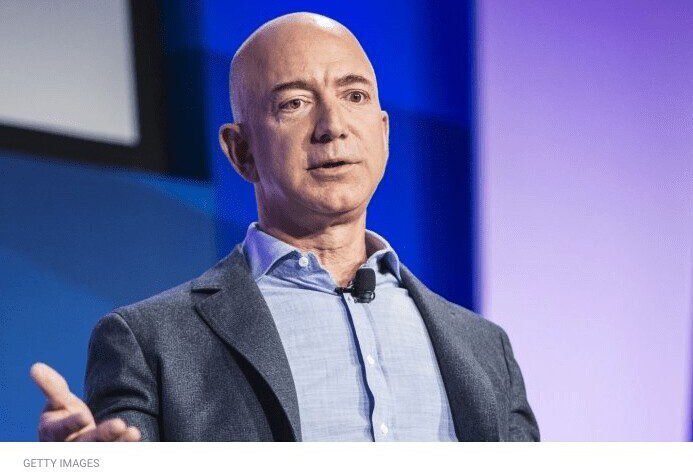
Jeff Bezos Banned PowerPoint in Meetings. His Replacement Is Brilliant
Narrative memos have replaced PowerPoint presentations at Amazon. Here are 3 reasons.
In his 2018 annual letter, Amazon founder and CEO Jeff Bezos repeated his rule that PowerPoint is banned in executive meetings. What Bezos replaced it with provides even more valuable insight for entrepreneurs and leaders.
In his letter, and in a recent discussion at the Forum on Leadership at the Bush Center, Bezos revealed that “narrative structure” is more effective than PowerPoint. According to Bezos, new executives are in for a culture shock in their first Amazon meetings. Instead of reading bullet points on a PowerPoint slide, everyone sits silently for about 30 minutes to read a “six-page memo that’s narratively structured with real sentences, topic sentences, verbs, and nouns.”
After everyone’s done reading, they discuss the topic. “It’s so much better than the typical PowerPoint presentation for so many reasons,” Bezos added.
As a student of narrative storytelling in business for the past 20 years, I can tell you exactly why it’s so much better.
1. Our brains are hardwired for narrative.
Narrative storytelling might not have been as critical for our survival as a species as food, but it comes close.
Anthropologists say when humans gained control of fire, it marked a major milestone in human development. Our ancestors were able to cook food, which was a big plus. But it also had a second benefit. People sat around campfires swapping stories. Stories served as instruction, warning, and inspiration.
Recently, I’ve talked to prominent neuroscientists whose experiments confirm what we’ve known for centuries: The human brain is wired for story. We process our world in narrative, we talk in narrative and–most important for leadership–people recall and retain information more effectively when it’s presented in the form of a story, not bullet points.
2. Stories are persuasive.
Aristotle is the father of persuasion. More than 2,000 years ago he revealed the three elements that all persuasive arguments must have to be effective. He called these elements “appeals.” They are: ethos, logos, and pathos. Ethos is character and credibility. Logos is logic–an argument must appeal to reason. But ethos and logos are irrelevant in the absence of pathos–emotion.
Emotion is not a bad thing. The greatest movements in history were triggered by speakers who were gifted at making rational and emotional appeals: Abraham Lincoln and Martin Luther King, Jr.; and John F. Kennedy, who blended science and emotion to inspire America’s moon program.
Neuroscientists have found emotion is the fastest path to the brain. In other words, if you want your ideas to spread, story is the single best vehicle we have to transfer that idea to another person.
“I’m actually a big fan of anecdotes in business,” Bezos said at the leadership forum as he explained why he reads customer emails and forwards them to the appropriate executive. Often, he says, the customer anecdotes are more insightful than data.
Amazon uses “a ton of metrics” to measure success, explained Bezos. “I’ve noticed when the anecdotes and the metrics disagree, the anecdotes are usually right,” he noted. “That’s why it’s so important to check that data with your intuition and instincts, and you need to teach that to executives and junior executives.”
Bezos clearly understands that logic (data) must be married with pathos (narrative) to be successful.

















